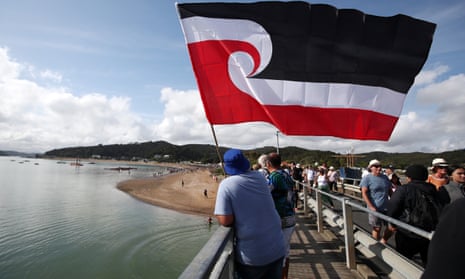New Zealand’s presbyterian church will offer any future land sales to Māori iwi first, as the institution reckons with its role in colonisation and land confiscations in Aotearoa.
The institution is a significant landowner across the country, with more than $1.5bn in land assets and 400 properties. Their decision comes at a time of increasing scrutiny on the church and its role in the colonisation of New Zealand, including as a beneficiary of confiscated or stolen land.
Rev Dr Wayne Te Kaawa told TVNZ that the church now wanted to be on the right side of history. “Some of our ministers were chaplains to the forces in the New Zealand Land Wars and they gave eucharist and blessings to all those soldiers who fought there,” he said.
“We’ve been on the other side of history as a church, but this time we’re taking a different stance and have decided issues like justice and the treaty and honouring the Treaty and our Māori partners [are important].”
The church has said that while some of its land was acquired through land sales and gifts, parts were likely taken by the crown following the New Zealand land wars of the 1860s. More than 4 million acres of Māori land were confiscated by the crown, often as punishment. Much of it has never returned.
While the church has made some gifts of land back to iwi, this decision will cover all future land sales across the country and give first right of refusal to the tribal authorities.
In meeting records of the decision, the church wrote that churches could make those offers at below market rate, although the final ratified decision did not prescribe that. “The church owns a significant amount of land. Each year a small number of these titles come up for sale. By offering Māori the right of first refusal … this is one way the church can honour its treaty commitments.”
Moderator Marina Rakuraku told the assembly that the church “should differentiate between land that had been gifted and land that had been sold. Gifted land ought to be returned as a gift.”
Te Kaawa said the purchasing agreement had been a long time coming, but was a step in the right direction for the church.
“I felt an overwhelming sense of pride,” he said. “I also felt a tinge of sadness, thinking back to all of those Māori in the church who have raised land issues, and it’s never gone anywhere.”
The vote was carried 121 to 12.
